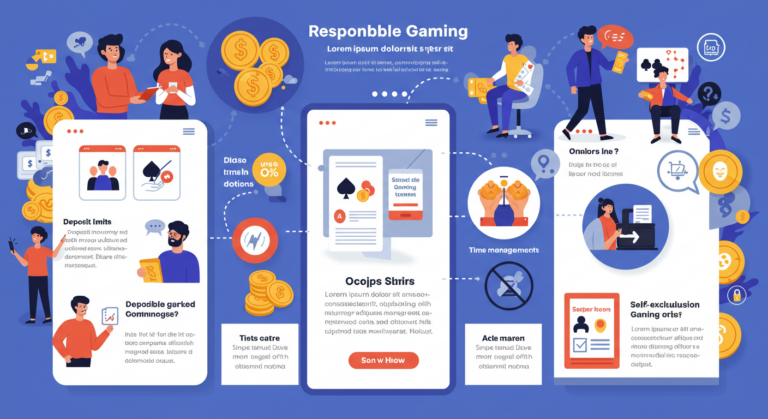Online casino gaming
Payment Methods Available
In the bustling realm of online casino gaming, a veritable smorgasbord of payment methods awaits eager players. The tried-and-true credit and debit cards continue to reign supreme—beloved for their simplicity and the comfort of familiarity. Yet, creeping into this vibrant landscape are nimble e-wallets like PayPal and Skrill, swiftly gaining ground with promises of rapid-fire transactions and an extra layer of privacy that many crave.
But wait! Enter cryptocurrency—a rising star in this digital arena—captivating those who seek anonymity and ironclad security in their online dealings. It’s not just a trend; it’s becoming a cornerstone for countless gamers navigating these virtual casinos.
This eclectic mix of payment options speaks directly to the kaleidoscope of player preferences and needs. Most online casinos proudly boast instant deposits, whisking players straight into their gaming adventures without so much as a hiccup. However, when it comes time to cash out? Ah, that’s where things can stretch out a bit longer—withdrawal times vary wildly depending on your chosen method and the casino’s own processing whims.
By rolling out such an array of financial avenues, online casinos don’t merely facilitate transactions; they elevate the entire user experience to new heights while ensuring that every monetary movement remains both seamless and secure.
Secure Transactions in Online Casinos
In the chaotic and dynamic world of online casinos, where thrill meets risk, transaction security emerges as a non-negotiable cornerstone for both operators and players alike. A tapestry of encryption technologies—think SSL (Secure Socket Layer)—weaves its protective magic around sensitive data during those critical transfers. This intricate web creates an impenetrable connection between a player’s device and the casino’s server, shielding personal and financial information from lurking cyber menaces that are always waiting in the digital shadows.
But wait! There’s more to this tale: reputable online casinos don’t just rest on their laurels; they often subject themselves to rigorous audits and certifications by independent entities, thus reinforcing their security claims with ironclad validation.
Diving deeper, a smorgasbord of payment methods sprawls before users like a buffet designed for every palate—all while ensuring that secure transaction processes remain at the forefront. E-wallets dance alongside credit cards and cryptocurrencies, each offering not just convenience but also layering on additional shields of anonymity and fraud protection. Players are urged—nay, almost compelled—to choose payment options boasting robust buyer protection policies that further cement the safety net surrounding their financial dealings.
These comprehensive security protocols do more than merely safeguard; they cultivate trust in this virtual gaming arena, elevating the overall experience so players can immerse themselves in gameplay without fretting over transactional integrity. In such an environment rife with uncertainty, peace of mind becomes a priceless commodity!
The Legality of Online Gambling
The terrain of online gambling is an intricate tapestry, woven from a myriad of influences—state laws here, federal regulations there. In the United States, the legal status of online gaming is anything but uniform; it swings wildly from one state to another. Some states have rolled out the welcome mat for online casinos, offering a smorgasbord of digital betting options. Others play gatekeeper with iron-fisted rules, outright banning all forms or permitting them only under tightly controlled conditions. This legal patchwork creates a haze of uncertainty for hopeful players and operators alike, underscoring the necessity to stay vigilant about local statutes.
On a global scale, the legality surrounding online gambling can diverge dramatically across different jurisdictions. Take countries like the United Kingdom: they’ve crafted robust regulatory frameworks that not only safeguard players but also funnel revenue into state coffers. Conversely, in numerous areas around the globe, online gambling flounders in a gray zone—barely touched by regulation—leaving players adrift without any formal means of recourse should things go awry. Grasping these diverse legal landscapes is absolutely vital for anyone considering dipping their toes into the vast ocean of online gaming.
State Regulations in the U.S.
The landscape of online gambling in the United States is a labyrinthine tapestry woven from an intricate web of state-specific regulations. Picture this: some states have rolled out the red carpet for online casino gaming, welcoming licensed platforms with open arms, while others stand resolutely against all forms of digital wagering, their doors firmly shut. This patchwork approach mirrors a kaleidoscope of attitudes toward gambling that vary wildly across regions—shaped by a mélange of cultural beliefs and economic landscapes.
As each state carves out its own regulatory niche, uniformity is but a distant dream; it’s as if every jurisdiction dances to its own tune. For players eager to dip their toes into the waters of online casinos from places where such activities are deemed acceptable, this disarray can breed bewilderment. Moreover, these state regulations often delineate specific stipulations for operators—think licensing fees that feel like tolls on the road to legality, tax obligations that weigh heavy on profits, and robust measures aimed at curbing problem gambling—all designed not only to safeguard participants but also to champion fair play in this burgeoning arena.
Responsible Gambling Practices
Promoting responsible gambling isn’t just important—it’s absolutely vital for the well-being of players and the integrity of online gaming platforms. Picture this: many online casinos now feature tools that let players set limits—on deposits, losses, even time spent playing. These aren’t just bells and whistles; they empower users to take control of their gambling habits, crafting a safer space amidst the thrill of chance.
But that’s not all! Providing resources and support for those grappling with gambling issues? That’s another cornerstone of responsible gaming initiatives. It’s about more than just rules; it’s about real help when people need it most.
Now, let’s talk education—an unsung hero in promoting responsible practices. Operators often populate their websites with crucial information on recognizing problem gambling signs, arming players with knowledge to spot potential pitfalls before they tumble in too deep. And what about training staff? Equipping them to assist players and identify those at risk molds a truly supportive atmosphere—a community rather than a mere transaction.
In essence, these proactive measures do more than enhance player safety—they weave trust into the very fabric of the online gaming industry itself. So here we are: fostering responsibility isn’t merely an option; it stands as a commitment to creating both enjoyment and security in this exhilarating world.
Identifying Problem Gambling
Spotting the telltale signs of problem gambling is absolutely vital for safeguarding the well-being of players. Behavioral shifts often emerge as early warnings—think about someone pulling away from social circles or letting responsibilities slip, all in favor of chasing that next gaming thrill. Then there’s the financial strain: borrowing cash to fuel those gambling escapades or cranking up bets like it’s an adrenaline rush can signal a much deeper problem lurking beneath the surface. And let’s not forget the emotional rollercoaster; anxiety, depression, irritability—they tend to rear their heads especially after losses.
Getting wise to these red flags empowers both players and their loved ones to take action before things spiral out of control. A wealth of resources exists at our fingertips—self-assessment tools and support groups ready to help individuals scrutinize their gambling behaviors with fresh eyes. Fostering open dialogues about this topic can chip away at stigma and pave the way for healthier habits. In essence, catching problem gambling in its infancy opens doors for more effective interventions and meaningful support for everyone involved.
Security Measures in Online Casinos
In the labyrinthine world of online casinos, player safety reigns supreme—an unwavering priority that manifests in a tapestry of intricate security measures designed to cultivate a fortress-like gaming environment. Picture this: encryption technologies, like the stalwart SSL (Secure Socket Layer), woven into the very fabric of transactions, safeguarding sensitive information with an impenetrable shield. This digital armor forges a secure connection between the player’s device and the casino’s server, thwarting any would-be intruders or data breaches lurking in the shadows.
But wait! That’s not all; behold the power of regular audits conducted by independent regulatory bodies—a crucial element that amplifies player confidence. These meticulous inspections ensure that casinos toe the line, adhering to rigorous security protocols as if under watchful eyes.
And then we have two-factor authentication (2FA)—a clever twist added to enhance account protection. Imagine needing not just one key but two forms of identification before stepping through your account’s virtual door; it transforms access into an elaborate dance where unauthorized users stumble instead.
Yet still more vigilance is at play! Continuous monitoring for unusual activity operates like a vigilant guardian—scrutinizing player behavior as though deciphering cryptic messages. In real time, these observant systems can unearth potential fraud or ominous threats on the horizon, triggering swift interventions when danger approaches.
All these intertwining efforts speak volumes about an industry resolutely dedicated to crafting a safe and secure gaming experience for every participant involved—a testament to its commitment amidst ever-evolving challenges.
Protecting Player Data
In the bustling realm of online gaming, where excitement and risk intertwine, it becomes paramount to implement robust measures that shield sensitive player information from prying eyes. Picture this: casinos harness cutting-edge encryption technologies, a digital fortress safeguarding your data as it travels through the vast expanse of cyberspace. With Secure Socket Layer (SSL) encryption in play, personal and financial details are cloaked in an impenetrable veil of confidentiality.
But wait—there’s more! Regular audits dance alongside strict adherence to industry standards, bolstering security like a vigilant guardian standing watch. This concerted effort isn’t merely about compliance; it’s about nurturing trust—a delicate bond forged between players and operators within this electrifying ecosystem, creating a sanctuary for safe gaming experiences.
Venturing further into security territory, many online casinos embrace multi-factor authentication protocols—a clever strategy that adds another layer of protection akin to an extra lock on the door. Players must navigate through various identity verification methods before gaining access, rendering unauthorized entry not just difficult but nearly Herculean.
And let’s not forget transparency! Operators frequently unveil clear privacy policies outlining how player data is collected, utilized, and safeguarded—think of it as pulling back the curtain on their operations. By prioritizing open communication and clarity regarding data practices, these casinos effectively quell apprehensions surrounding potential misuse while reinforcing their unwavering commitment to championing player interests amidst the thrill-seeking chaos.
| Security Measure | Description | Benefits |
|---|---|---|
| SSL Encryption | Utilizes Secure Socket Layer technology to encrypt data transfer. | Protects personal and financial information from interception. |
| Regular Audits | Conducted to ensure compliance with industry security standards. | Enhances reliability and builds trust with players. |
| Multi-Factor Authentication | Requires multiple forms of verification for user identity. | Strengthens security against unauthorized access. |
| Transparent Privacy Policies | Clearly outlines data collection and usage practices. | Increases player confidence and trust in the casino’s operations. |
The Future of Online Casino Gaming
The landscape of online casino gaming is on the brink of a seismic shift, propelled by the relentless march of technology. Players are no longer satisfied with mere gameplay; they crave experiences that immerse them in worlds bursting with excitement and engagement. This insatiable hunger has driven operators to funnel their resources into cutting-edge virtual reality and augmented reality innovations—tools designed to conjure up environments so lifelike that they blur the lines between digital realms and physical casinos.
But wait, there’s more! Enter the era of online multiplayer experiences—a burgeoning phenomenon set to cultivate vibrant community-driven platforms where players can interact in real-time while diving headfirst into their favorite games. Imagine chatting, strategizing, or simply sharing a laugh with fellow gamers as you spin those reels or shuffle those cards!
And then there’s blockchain—a game-changer poised to revolutionize how we perceive trust and security in this space. By harnessing its transparent and decentralized nature, blockchain addresses nagging worries about fairness and financial transactions like never before. Coupled with artificial intelligence—which promises a tailored touch through personalized game recommendations and enhanced customer support—the future looks tantalizingly bright for online casinos.
As this dynamic industry navigates these turbulent waters of change, operators must be nimble, adapting swiftly to emerging trends while staying attuned to ever-evolving consumer preferences. Buckle up; it’s going to be quite a ride!
Emerging Trends and Innovations
The landscape of online casino gaming is in a whirlwind of transformation, fueled by rapid technological advancements and the ever-shifting whims of consumer preferences. One striking trend making waves is the infusion of virtual reality (VR) and augmented reality (AR) into the very fabric of gaming experiences. These cutting-edge technologies plunge players into an interactive realm that mimics the electric atmosphere of a brick-and-mortar casino. As these innovations become more widespread, they wield the power to entice a diverse audience—especially younger gamers hungry for fresh, exhilarating adventures.
Equally noteworthy is the meteoric rise of mobile gaming platforms that empower users to dive into their favorite casino games right from their smartphones and tablets. The sheer convenience offered by mobile access has ignited an explosion in gaming apps brimming with options—from classic table games steeped in tradition to groundbreaking slots bursting with creativity. This pivot toward mobile entertainment not only amplifies user ease but also compels casinos to pour resources into responsive design and finely-tuned gameplay tailored for an increasingly on-the-go audience.
- The integration of blockchain technology ensures enhanced security and transparency in online transactions.
- Live dealer games are becoming increasingly popular, providing players with a more authentic casino experience.
- Gamification elements, such as leaderboards and rewards systems, are being implemented to improve user engagement.
- Personalized gaming experiences through AI-driven recommendations are on the rise, catering to individual player preferences.
- Social gaming features are emerging, allowing players to interact and compete with friends and other users in real-time.
- Esports betting is gaining traction, attracting younger demographics and diversifying the betting landscape.
- Responsible gaming measures and tools are being enhanced to promote safer gaming practices among players.
Conclusion
The landscape of online casino gaming is in a state of perpetual flux, continually reshaped by the relentless march of technology and the ever-evolving whims of consumers. Operators are not just enhancing user experiences; they’re crafting them with a flair for innovation that’s hard to ignore—think cutting-edge features and groundbreaking payment solutions! This vibrant industry doesn’t just exhibit growth; it radiates resilience.
As players increasingly seek secure transactions and embrace responsible gambling practices, there’s a sense of empowerment in their gaming escapades. They dive into these virtual realms with newfound confidence, ready to explore what’s on offer. Meanwhile, regulatory frameworks—those often cumbersome structures—are shifting gears too, striving to strike that delicate balance between nurturing an environment where operators can thrive and safeguarding consumer interests.
In this whirlwind, stakeholders must stay sharp-eyed and proactive, tackling emerging challenges head-on while seizing the myriad opportunities flickering like neon lights across this dynamic digital playground. The future? It brims with potential for an industry committed to prioritizing safety alongside player engagement—a promising horizon paving the way for a culture steeped in responsible gaming practices!






